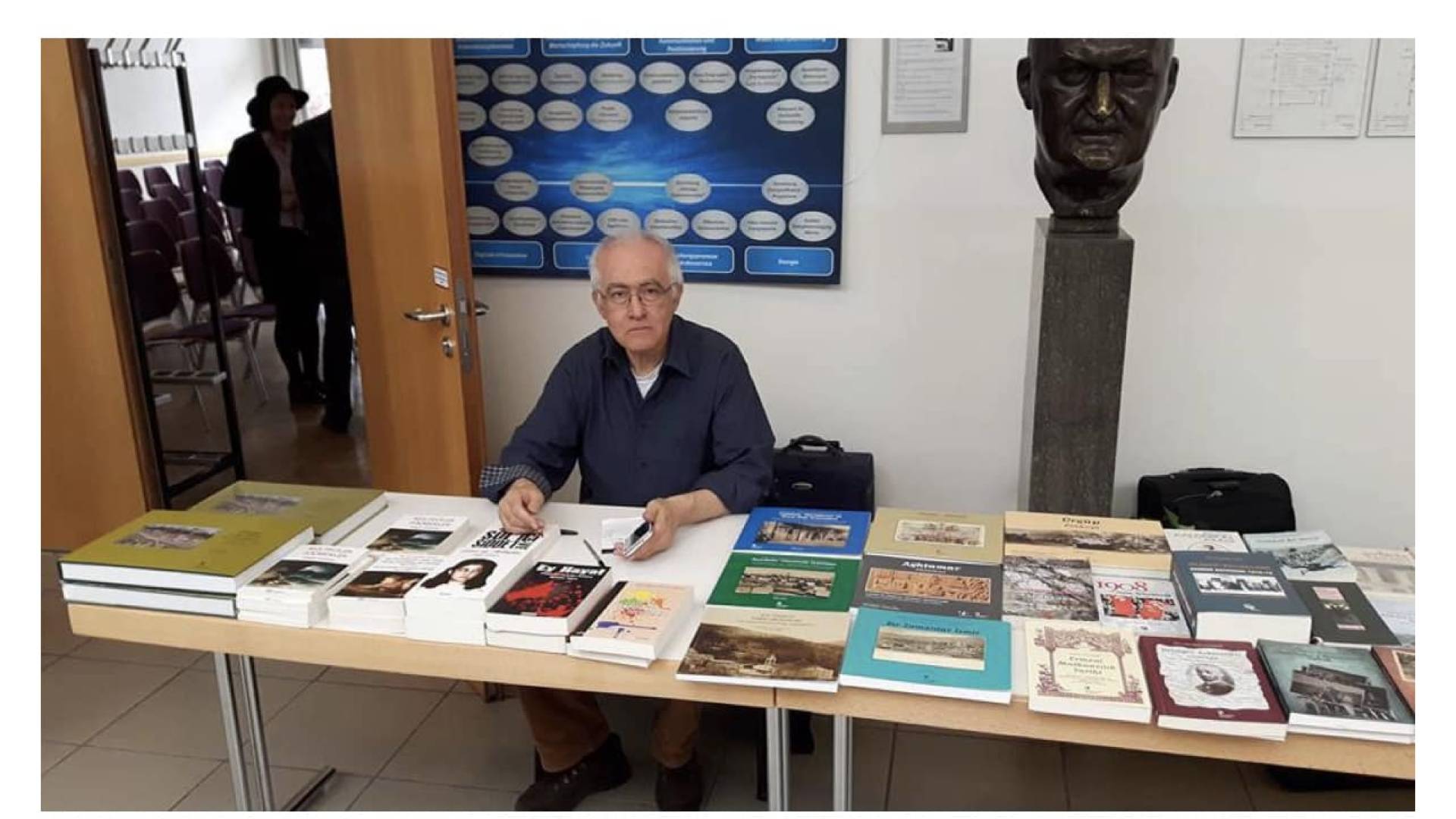THE SOCIALIST MOVEMENT IN Türkiye: A BRIEF PANORAMA (1)
THE SOCIALIST MOVEMENT OF TURKEY: A BRIEF PANORAMA (1) The reason for using the word "socialist" in the title instead of "revolutionary" or "left" is that the other two words are also used in different meanings. For example, revolutionary can also mean "Atatürk's revolutionism". The word left also has unclear boundaries. Socialist means anti-capitalist. It is against capitalism and the power of the bourgeoisie. It is in favour of the abolition of private ownership of the major means of production or the limitation of it to a significant extent according to the period. Anyone who does not advocate these things cannot be a socialist and, by the same token, a communist. Socialism is divided into different currents. This division is not peculiar to us; it has always existed throughout the history of socialism. The socialist revolutions of the 20th century took place in environments where there were different organisations, socialist but with different analyses of the country and the world. The socialist movement has never been a single movement in any country; it has always had a multiple structure with large and small splits. This is why the oft-asked question "why don't socialist organisations unite?" is meaningless. Some organisational divisions are unnecessary, that is fine, but there has never been a unified socialist movement without divisions. The Sandinistas who made the Nicaraguan revolution were not one organisation, but a front of many organisations. The problem of the socialist movement is not fragmentation, but the inability of these fragments to work together sufficiently. If, starting from these general observations, some organisations can be analysed... Let's start with HDP... HDP is not a socialist party because it does not target capitalism in its programme and actions. It favours a more rule-based, more democratic capitalism in the country. Therefore, the most advanced line that the HDP can reach can only be social democracy. The HDP also defends the interests of the section of the Kurdish bourgeoisie that has a national side. It is not for socialists to defend the interests of this or that section of the bourgeoisie, regardless of which people they belong to. The HDP and the PKK are different organisations, but their masses are significantly intertwined. To maintain a presence in North East Syria under the protection of the USA for years and not to take part in the vote in the Turkish Grand National Assembly on Finland's NATO membership in order not to anger this country - the same attitude shown by the TİP - is not an attitude that socialists can defend. The socialist movement has internalised anti-imperialism, which mainly targets the USA. You cannot be a socialist by forgetting the "No to NATO" campaigns of the 1965-1971 period. The symbolic name of anti-Americanism and anti-NATOism of that period was Deniz Gezmiş. There are various socialist organisations within the HDP: Labourer Movement Party, EMEP, Social Freedom Party, Federation of Socialist Assemblies, Socialist Refoundation Party... The HDP includes a small section of Turkish socialists. The section outside the HDP is much larger. It cannot be said that the socialist organisations within the HDP agree with the HDP on every issue. For example, some parties refused to vote for Kılıçdaroğlu as the head of state in the election. As for the situation of the TİP... I find it positive that the TİP is making a breakthrough with its own strength, as seen in the last elections. The socialist movement has to keep a clear distance from the HDP or the Green Left Party. Such a distance does not prevent solidarity, but we are socialists, not social democrats. The country also needs a social democratic party (the CHP has nothing to do with social democracy) but we are socialists. Apart from this, the TİP is a particularly weak party. It is theoretically weak and has nothing to say, for example, about 20th century socialism. It places too much hope in parliamentary struggle. The TİP does not represent the socialist movement (there are many more socialist organisations than it), nor did socialism begin with the TİP. The struggle for socialism in these lands existed before the establishment of the republic. They should at least remember the first TİP, which made a historic debut in 1965. Moving on from here to the TKP... Let me immediately state that there are different TKPs with different suffixes to their names. I will only focus on the TKP, which participated in the elections as part of the Socialist Power Union. This party has nothing to say about the history of socialism in the 20th century. It is as if real socialism did not live; it did not rise, gain important successes and then dissolve... The current TİP left the TKP, they had been together for years. From this point of view, it is natural that their characteristics are not very different. Here it is useful to enter the subject of Kemalism. Kemalism is the ideology of the Turkish bourgeoisie and has evolved together with it. Two important deviations must be mentioned here: Firstly, Kemalism is not, and never has been, leftist. Being in elbow contact with the Kemalism of the period -like the THKP-C- does not mean being a Kemalist. In the indictment of the THKP-C, there were about a hundred officers as defendants. No socialist movement in the history of the country has ever been organised at this level within the army. After the 12 March coup, the issue of Kemalism should have been closed for the socialist movement, but this was not the case. The main reason for this is the incomplete evaluation of Kemalism. Kemalism is a bourgeois ideology and cannot be evaluated only within the framework of the Misak-ı Milli or national borders. Kemalism is westernisation. Turkey is not a typical Middle Eastern country, but neither is it a Western society. Those who have been advocating against joining the European Union for years are in reality anti-Kemalists. If NATO had existed under Mustafa Kemal, I have no doubt that Turkey would have become a member. Kemalism wanted to integrate with the West, but the West, especially Britain, was not in favour. In the 1923 Izmir Economic Congress, Western countries were granted wide concessions, but they did not use them. Kemalism was anti-socialist, pro-bourgeoisie and westernist from the beginning. Kemalism set its goal as "reaching the level of contemporary civilisation" and this goal was bankrupt before the 1960s. Under the influence of the Kurdish movement, it was wrong to compress Kemalism into the framework of recognising or not recognising the Kurds. Kemalism should be evaluated in terms of its anti-socialist, bourgeois ideology. Secondly, Kemalism is not fascism. This assessment of İbrahim Kaypakkaya is wrong. Kaypakkaya defends the theses of the Third International. According to the III International, fascism is the open dictatorship of the most aggressive, most militarist, most terrorist section of the monopoly bourgeoisie. This definition bases fascism on the existence of a monopoly bourgeoisie, whereas in Atatürk's period there was no monopoly, let alone a proper bourgeoisie in the country. Turkey is a state-led capitalist country. In addition, in accordance with the conditions of the period, the Third International does not consider all monopoly as fascist, but only a certain section of it. In other words, in this analysis of fascism, monopoly is divided into fascist and non-fascist sections. (As a matter of fact, the USSR fought against the fascist section of monopoly - Germany, Japan, Italy - together with the non-fascist section - USA, England, France). If Kemalism is fascist, who is the non-fascist bourgeoisie? Fascism was first experienced in this country during the 12 March period. Kemalism evolved along with the bourgeoisie. Not every reaction can be called fascism. One should not pay attention to the accusations of "Kemalist, nationalist" used by the Kurdish movement against the socialists. The 20th century is the century of state building. In the process of the decolonisation of countries, many new states were established, and with the dissolution of the USSR and then Yugoslavia, this process continued. There are currently 195 states. There is no Kurdish state among them. In the 20th century, Kurds were unable to establish a state except Mehabat, which lasted for about a year. They could not produce a cadre and a movement capable of establishing and governing a state. They suffered severe oppression and massacres, but didn't other peoples who founded other states also experience the same? They found a way and established them. If those who are trying to minimise the Turkish socialists think that they will rise in this way, they are mistaken. The article will continue with a brief examination of other organisations...



 Türkçe
Türkçe 


















